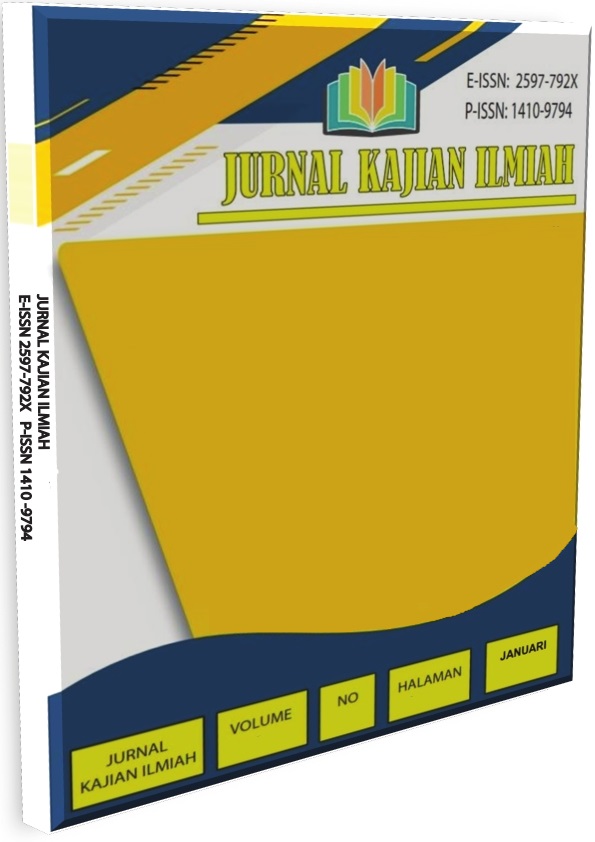Optimalisasi Support Vector Machine (SVM) Berbasis Particle Swarm Optimization (PSO) Pada Analisis Sentimen Terhadap Official Account Ruang Guru Di Twitter
DOI:
https://doi.org/10.31599/g0dv0y21Kata Kunci:
Particle Swarm Optimization, Ruang Guru, Sentiment Analysis, Support Vector MachineAbstrak
The significant increase in the number of users has caused public opinion on the Ruang Guru application to be widely spread through social media, especially Twitter. From 15,000 twitter data taken with the keyword Ruang Guru, a total of 2,358 datasets were obtained through the process of handling duplicates. In this study, sentiment analysis was carried out using the Support Vector Machine (SVM) algorithm which was optimized with Particle Swarm Optimization (PSO) then tested using the 10-Fold Cross Validation method which resulted in the highest accuracy rate of 89.20%, while the Support Vector Machine algorithm (SVM) only produces the highest accuracy rate of 88.56%. There is an increase of 0.64% with Particle Swarm Optimization optimization. Sentiment analysis results are positive, with positive results as much as 1463 data or 62.04% and 895 or 37.96% negative sentiment. From the results of this study, it is expected to be a material consideration for Ruang Guru to improve the quality of the service sector found on social media, especially Twitter.
Unduhan
Referensi
Ahmad, I., Basheri, M., Iqbal, M. J., & Rahim, A. (2018). Performance Comparison of Support Vector Machine , Random Forest , and Extreme Learning Machine for Intrusion Detection. IEEE Access, 6, 33789–33795. https://doi.org/10.1109/ACCESS.2018.2841987
Du, J., Liu, Y., Yu, Y., & Yan, W. (2017). A Prediction of Precipitation Data Based on Support Vector Machine and Particle Swarm Optimization. https://doi.org/10.3390/a10020057
Moraes, R., Valiati, J. F., & Gavião Neto, W. P. (2013). Document-level sentiment classification: An empirical comparison between SVM and ANN. Expert Systems with Applications, 40(2), 621–633. https://doi.org/10.1016/j.eswa.2012.07.059
Naseem, U., Razzak, I., Musial, K., & Imran, M. (2020). Transformer based Deep Intelligent Contextual Embedding for Twitter sentiment analysis. Future Generation Computer Systems, 113, 58–69. https://doi.org/10.1016/j.future.2020.06.050
Que, V. K. S., Iriani, A., & Purnomo, H. D. (2020). Analisis Sentimen Transportasi Online Menggunakan Support Vector Machine Berbasis Particle Swarm Optimization. Jurnal Nasional Teknik Elektro Dan Teknologi Informasi, 9(2), 162–170. https://doi.org/10.22146/jnteti.v9i2.102
santosa. (2007). Data Mining Teknik Pemanfaatan Data untuk Keperluan Bisnis.
Santoso, H., Hariyadi, I. P., & Prayitno. (2016). Data Mining Analisa Pola Pembelian Produk. Teknik Informatika, 1, 19–24. http://ojs.amikom.ac.id/index.php/semnasteknomedia/article/download/1267/1200
Sasongko, T. B. (2016). Komparasi dan Analisis Kinerja Model Algoritma SVM dan PSO-SVM (Studi Kasus Klasifikasi Jalur Minat SMA). Jurnal Teknik Informatika Dan Sistem Informasi, 2(2), 244–253. https://doi.org/10.28932/jutisi.v2i2.476
Sulistiyanto. (2018). Penerapan C4 . 5 Berbasis Particle Swarm Optimization ( PSO ) dalam Memprediksi Siswa Lolos Seleksi Perguruan Tinggi. Seminar Nasional Teknologi Dan Bisnis, 162–170.
Xia, X., Gui, L., Yu, F., Wu, H., Wei, B., & Zhang, Y. (2020). Triple Archives Particle Swarm Optimization. IEEE Transactions on Cybernetics, 50(12), 4862–4875. https://doi.org/10.1109/TCYB.2019.2943928












_-_Copy1.jpg)




